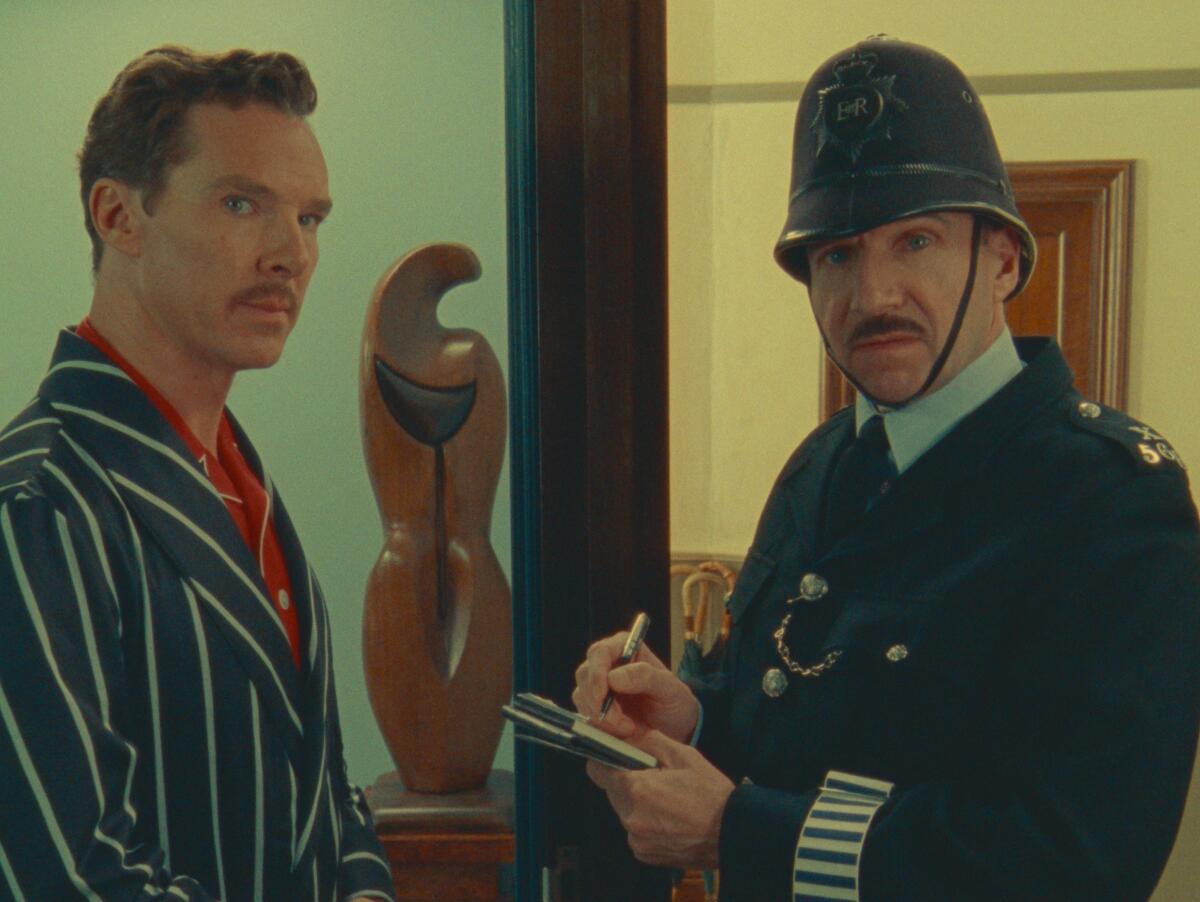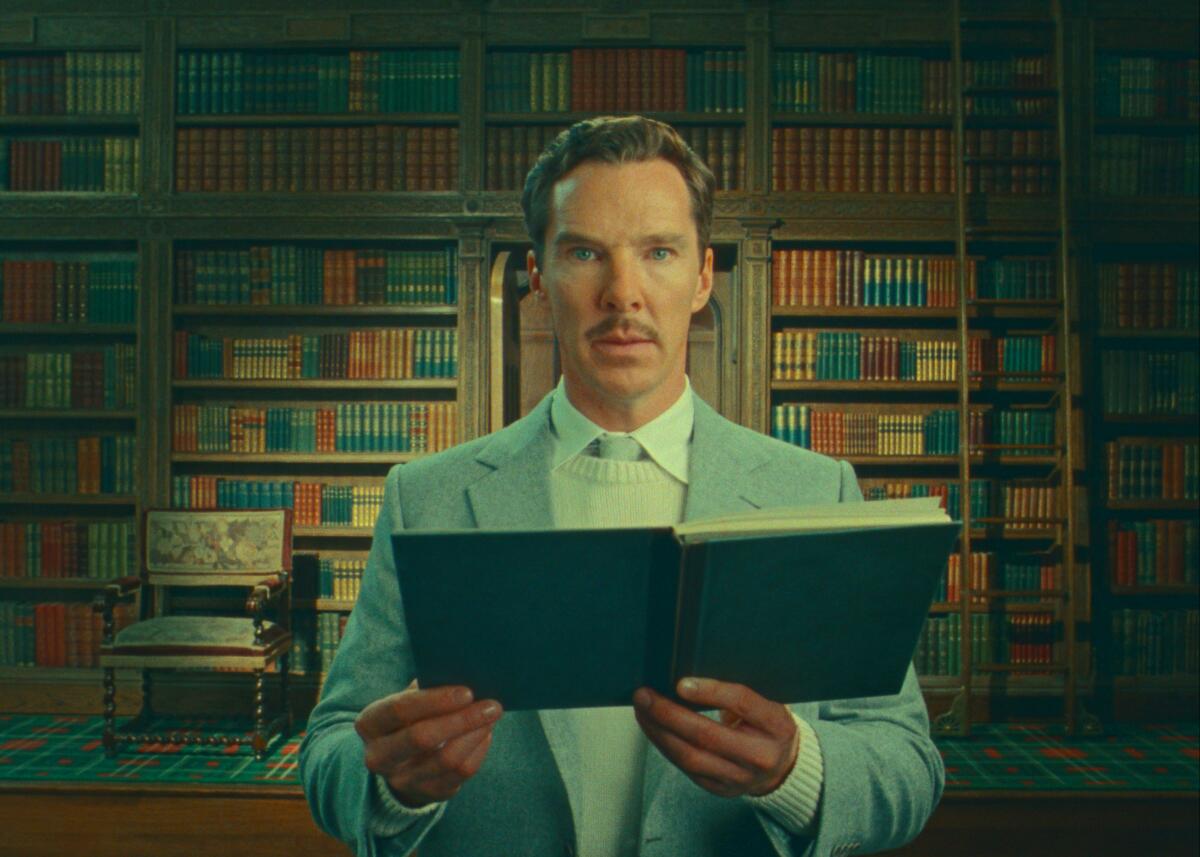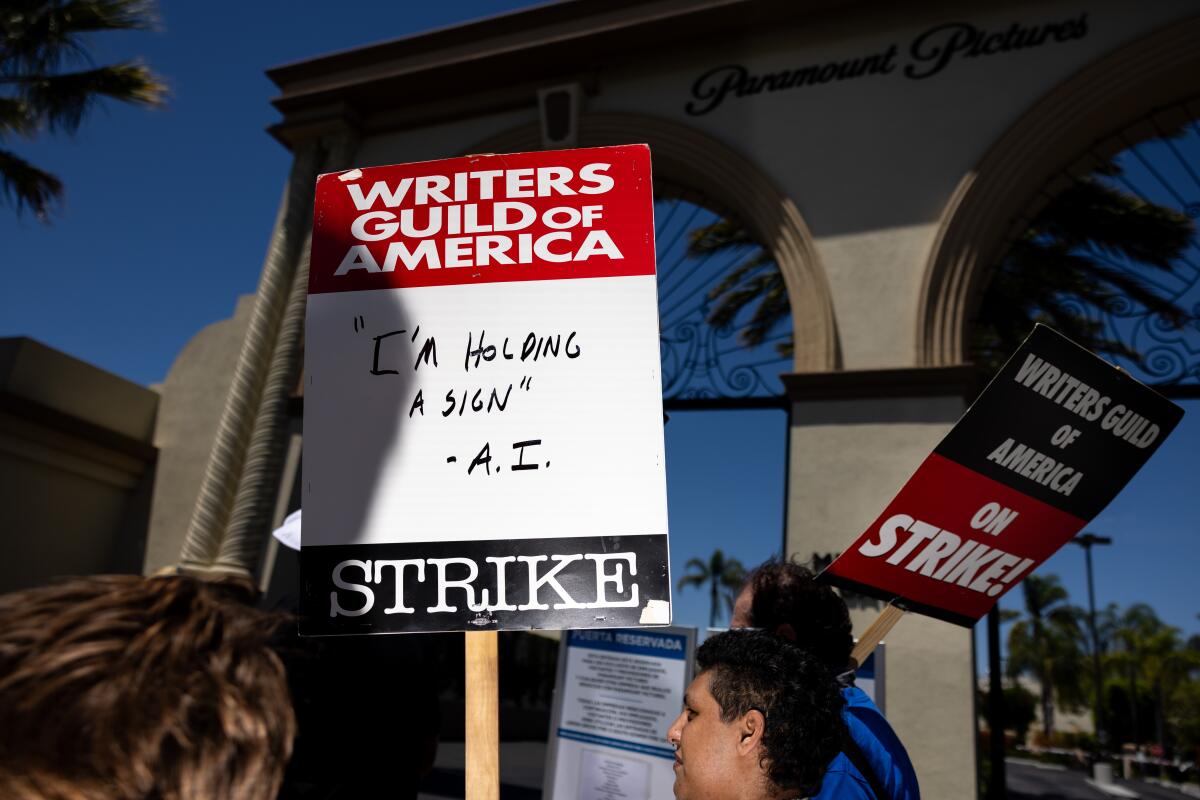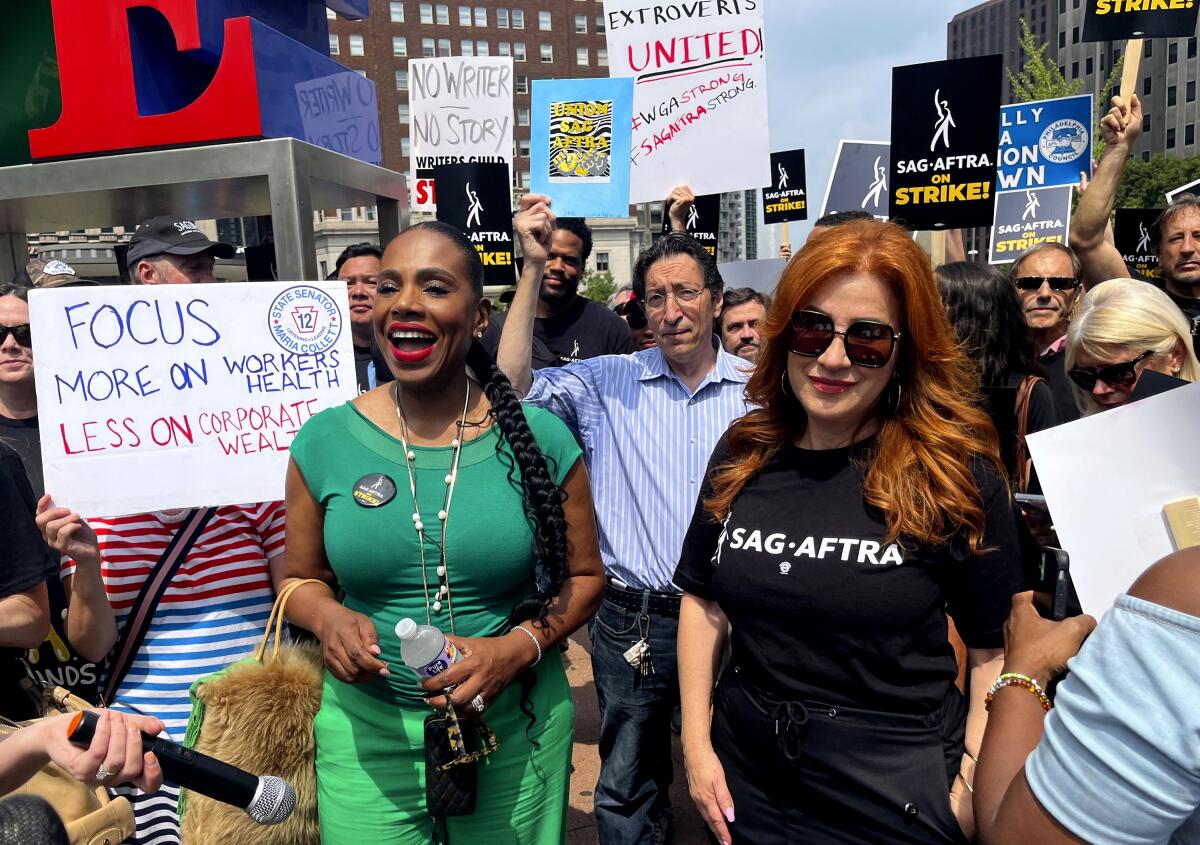It’s time for Wes Anderson’s Oscar moment

- Share via
Hello and happy end to the first week of autumn! You’ve felt it, right? That crisp chill in the morning air when you rise from bed and the temperature is almost down to the 60s. Brrrrrr! Best get that (pumpkin spice) coffee brewing. It’s cozy season in L.A.
From the Oscars to the Emmys.
Get the Envelope newsletter for exclusive awards season coverage, behind-the-scenes stories from the Envelope podcast and columnist Glenn Whipp’s must-read analysis.
You may occasionally receive promotional content from the Los Angeles Times.
I’m Glenn Whipp, columnist for the Los Angeles Times and host of The Envelope’s Friday newsletter. Hollywood’s writers have returned to work, and so have I ... though I am checking out these road trips because, yeah, the fall vibes around here aren’t really cutting it right now.
Wes Anderson on track to finally win an Oscar
How great is “The Wonderful Story of Henry Sugar,” the 39-minute Wes Anderson short that debuted on Netflix earlier this week? Have you watched it yet? It’s a charming adaptation of a Roald Dahl short story that opens with the author himself (Ralph Fiennes, cantankerous and perfect) presenting the story of Henry Sugar (Benedict Cumberbatch), a wealthy layabout who discovers the tale of Imdad Khan (Ben Kingsley), a man capable of sight without the use of his eyes. Through a delightful nesting egg narrative structure, Anderson reveals all these stories, arch humor gradually leading to a sweet story of redemption.
My pal, Times film critic Justin Chang, quite liked it, too.
“In a film about transcending the limitations of one’s vision, Anderson is careful not to show us everything, certain that our imaginations should do some of the visual lifting,” Justin writes in his review. “And in a story about fantastical possibilities, he and his longtime collaborators, including the cinematographer Robert Yeoman and the production designer Adam Stockhausen, employ a beguilingly primitive form of movie magic. Anderson’s delight in all things analogue and antiquarian is in full flower here, as is his belief that real enchantment demands a measure of winkingly obvious artifice: The more we can see the seams, the grander the illusion.”
Anderson has earned seven Oscar nominations over the years, including three for original screenplay (“The Royal Tenenbaums,” “Moonrise Kingdom,” “The Grand Budapest Hotel”) and two for animated feature (“The Fantastic Mr. Fox,” “Isle of Dogs”). He was also nominated for producing and directing “The Grand Budapest Hotel.” But he has never won, which is baffling when you look over that list of movies — a list, by the way, that doesn’t include the perfect comedy “Rushmore.”
“Henry Sugar,” which will be competing this year for best live action short film, provides voters with a chance to give one of our greatest filmmakers an Oscar in a year in which he also gave us the beautiful “Asteroid City.” Don’t blow this, academy members. It’s a layup.

Screenwriters secure deal on AI. Now the actors take up the fight
As I note in my review of sci-fi movie “The Creator,” which opens today, AI has its pros and cons. Within the opening moments of the film, we learn a few things about our future. Artificial intelligence has made fantastic advances. Robots are cooking our meals and chauffeuring us around town. They’re probably even writing our films and, sure, furiously churning out movie reviews, provided people in the future still read. Though why wouldn’t we be reading, what with all the spare time on our hands thanks to the wonders of AI?
Also: The robots have nuked Los Angeles, leaving nearly 1 million people dead, and judging from the brief glimpse the movie provides of our fair city, finally clearing up traffic on the 405.
So, a mixed bag.
My colleague Brian Contreras wrote about the curbs that the new Writers Guild contract — which still needs to be ratified by the union’s members — puts on studios’ use of AI and the concerns that actors have as SAG-AFTRA leaders negotiate with studios to end that strike.
“Nearly half of Americans are concerned about how AI will affect their jobs, per a recent Times poll,” Brian notes, “and the WGA strike is an early case study of a trend that will almost certainly continue: employee pushback on efforts to automate their livelihoods.”

Enjoying this newsletter? Consider subscribing to the Los Angeles Times
Your support helps us deliver the news that matters most. Become a subscriber.
‘It was trauma’: Now that the strike is over, how do showrunners move forward?
Nobody talks with television showrunners more than my colleague Yvonne Villarreal. She’s probably speaking with one right now, maybe about whether they’ve ever lived in an apartment that’s 3.5 feet wide and 4 feet tall. (That’s small, even for New York.) More likely though, she’s engaging them in conversations about their feelings about the end of a writers’ strike that lasted 150 excruciating days.
“I’m surprised that I am so emotional; I’ve been doing this a very long time,” Bruce Miller, longtime showrunner of “The Handmaid’s Tale,” told Yvonne. “I know so many of the people who are going to be affected by the changes, and it’s emotional to feel like we made progress in a way that I think will help the entire industry feel a little more stable for the next three or four years so that we can make great television. The concern, honestly, for someone in my position is for the people I work with. I’m very lucky in terms of my financial position, and I understand that. That relief, for them, is what I felt when the news broke.”
Miller is one of many showrunners Yvonne spoke with for this story, and, yes, emotions were close to the surface. I’m still floored that it took so long for studios to bargain in good faith. The good news: People are going back to work. The bad news: That means Bill Maher is too.

Feedback?
I’d love to hear from you. Email me at [email protected].
Can’t get enough about awards season? Follow me at @glennwhipp on Twitter.
From the Oscars to the Emmys.
Get the Envelope newsletter for exclusive awards season coverage, behind-the-scenes stories from the Envelope podcast and columnist Glenn Whipp’s must-read analysis.
You may occasionally receive promotional content from the Los Angeles Times.




